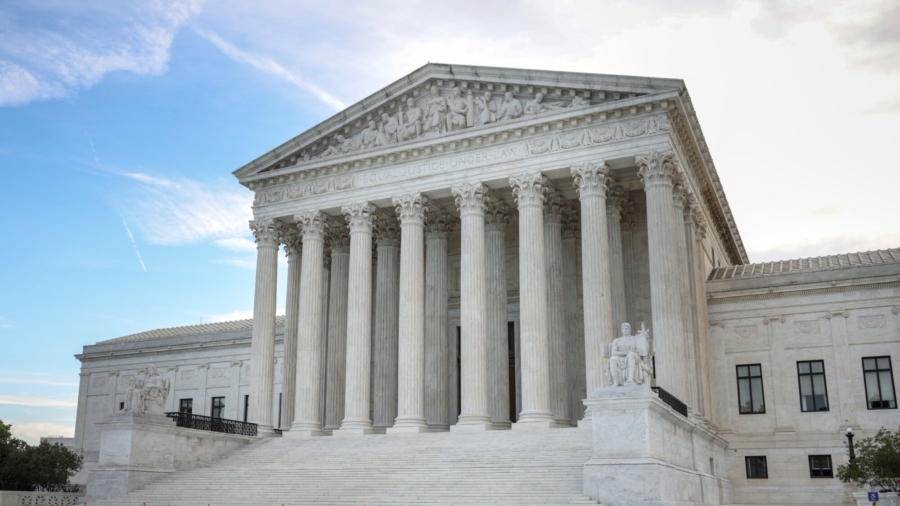The Supreme Court stayed a lower court’s order on Oct. 27 that would force a Michigan company to hand over documents to a Chinese manufacturer disputing the value of the assets of the company’s German parent company that it purchased in 2017.
In the case, ZF Automotive U.S. Inc. v. Luxshare Ltd., court file 21-401, the high court is being asked to resolve a split between federal courts of appeal on whether parties in private arbitration outside the country remain able to avail themselves of U.S. courts’ power to compel the production of evidence.
The Supreme Court was recently poised to consider such a question but the parties in Servotronics Inc v. Rolls-Royce PLC, a case with some similarities, was dropped. The case had been scheduled for oral argument on Oct. 5. The high court dismissed the legal proceeding on consent on Sept. 29.
In the case at hand, the petitioner, Michigan-based ZF Automotive, manufactures automotive parts. The respondent, China-based Luxshare, manufactures consumer electronics, communications-related, and automotive products.
Luxshare is sometimes called “little Foxconn,” after Taiwan-based Foxconn, an electronics contract manufacturer in the Apple supply chain that has a large number of Chinese supplier locations.
A dispute surfaced after Luxshare acquired a business unit of ZF Friedrichshafen AG, a German corporation, for approximately $1 billion in 2017. Luxshare argued it had been misled about the profitability of two of ZF’s businesses. The agreement stated that disputes would be resolved according to the rules of the German Institution of Arbitration.
Citing current precedent from the 6th U.S. Circuit Court of Appeals that holds that private arbitration is within the scope of Section 1782 of Title 28 of the U.S. Code, which deals with compelling testimony before a foreign tribunal, a U.S. district court in Detroit approved a request by Luxshare to subpoena ZF Automotive, a subsidiary of the German company, ordering it to hand over documents to Luxshare. The district court found that private arbitration outside the United States falls under Section 1782.
Luxshare had demanded the documents before possibly taking the dispute to private arbitration in Germany, which would have to be initiated before year’s end. Despite ZF Automotive’s appeal in the Supreme Court, the case has not yet been finally resolved by the district court.
This case “presents an ideal vehicle by which the Court could resolve the longstanding circuit split and determine—once and for all—what Section 1782 means,” ZF Automotive states in its petition (pdf) to the high court.
ZF Automotive argued in its stay application (pdf) before the Supreme Court that its interests will be adversely affected if the stay is not granted because Luxshare will unfairly gain an advantage.
“Irreparable harm to Applicants will undoubtedly result if the district court’s order is not stayed, as Luxshare will immediately use any discovery obtained in this case in its request for arbitration—potentially leaving Applicants with no remedy even if they are ultimately vindicated on the threshold legal question in this case,” the application states.
“Luxshare will suffer no harm from a stay, as it has not yet filed its request for arbitration.”
The Supreme Court acted in the case late Oct. 27, after an application for stay was presented to Justice Brett Kavanaugh. The justice referred the matter to the full court which then put a hold on the relevant order issued by the U.S. District Court for the Eastern District of Michigan, “pending the disposition of the petition for a writ of certiorari before judgment.”
In other words, the Supreme Court has not yet agreed to hear the case, though the fact that it granted the stay application suggests there is a good possibility it will do so.
The Epoch Times reached out to counsel of record for the petitioner, Roman Martinez V, and the respondent, Andrew Rhys Davies, but did not receive an immediate reply.
From The Epoch Times

